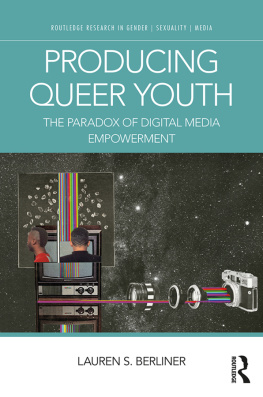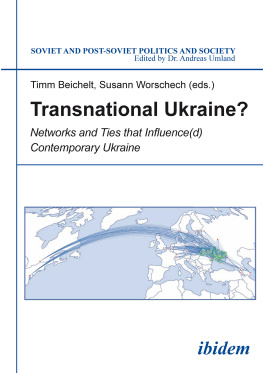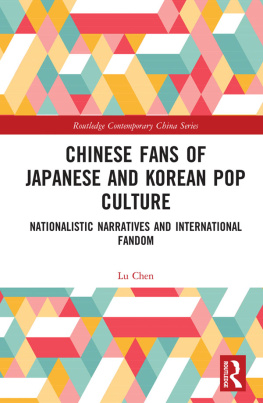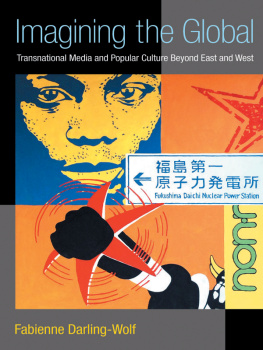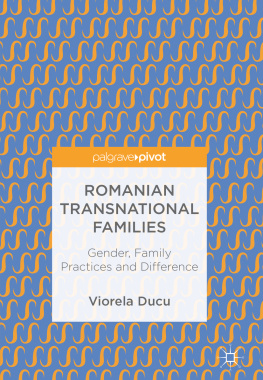
Digital Mediascapes of Transnational Korean Youth Culture
Drawing on vivid ethnographic field studies of youth on the transnational move, across Seoul, Toronto, and Vancouver, this book examines transnational flows of Korean youth and their digital media practices.
This book explores how digital media are integrated into various forms of transnational life and imagination, focusing on young peoples engagement with digital media. By combining theoretical discussion and in-depth empirical analysis, the book provides engaging narratives of transnational media fans, sojourners, and migrants. Each chapter illustrates a form of mediascape, in which transnational Korean youth culture and digital media are uniquely articulated. This perceptive research offers new insights into the transnationalization of youth cultural practices, from K-pop fandom to smartphone-driven storytelling.
A transnational and ethnographic focus makes this book the first of its kind, with an interdisciplinary approach that goes beyond the scope of existing digital media studies, youth culture studies, and Asian studies. It will be essential reading for scholars and students in media studies, migration studies, popular culture studies, and Asian studies.
Kyong Yoon is an associate professor of cultural studies at the University of British Columbia Okanagan. He has published widely on digital media, migration, and youth culture in international journals, including New Media & Society, Popular Music & Society, and International Journal of Communication.
Routledge Research in Digital Media and Culture in Asia
Edited by Dal Yong Jin, Simon Fraser University
Chinese Social Media
Social, Cultural, and Political Implications
Edited by Mike Kent, Katie Ellis, and Jian Xu
Digital Media and Risk Culture in Chinas Financial Markets
Zhifei Mao
Mediatized Religion in Asia
Studies on Digital Media and Religion
Edited by Kerstin Radde-Antweiler and Xenia Zeiler
Digital Transactions in Asia: Economic, Informational, and Social Exchanges
Edited by Adrian Athique and Emma Baulch
Digital Mediascapes of Transnational Korean Youth Culture
Kyong Yoon
Digital Mediascapes of Transnational Korean Youth Culture
Kyong Yoon
First published 2020
by Routledge
52 Vanderbilt Avenue, New York, NY 10017
and by Routledge
2 Park Square, Milton Park, Abingdon, Oxon, OX14 4RN
Routledge is an imprint of the Taylor & Francis Group, an informa business
2020 Taylor & Francis
The right of Kyong Yoon to be identified as author of this work has been asserted by him in accordance with sections 77 and 78 of the Copyright, Designs and Patents Act 1988.
All rights reserved. No part of this book may be reprinted or reproduced or utilised in any form or by any electronic, mechanical, or other means, now known or hereafter invented, including photocopying and recording, or in any information storage or retrieval system, without permission in writing from the publishers.
Trademark notice: Product or corporate names may be trademarks or registered trademarks, and are used only for identification and explanation without intent to infringe.
Library of Congress Cataloging-in-Publication Data
A catalog record for this title has been requested
ISBN: 978-1-138-60300-4 (hbk)
ISBN: 978-0-429-46925-1 (ebk)
Typeset in Sabon
by codeMantra
Contents
This monograph was supported by the Academy of Korean Studies Grant (AKS-2018-P06). Early versions of appeared as Yoon, K. (2016). The cultural appropriation of smartphones in Korean transnational families. In S. S. Lim (Ed.), Mobile communication and the family (pp. 93108). New York, NY: Springer and Yoon, K. (2016). The migrant lives of the digital generation. Continuum: Journal of Media & Cultural Studies, 30(4), 369380.
Note to Readers
In this book, Korea refers to the Republic of Korea (South Korea) unless otherwise stated. In romanization of Korean sources and names, the Revised Romanization of Korean is used except for already established customs such as a persons name and locations.
In August 2016, Tiffany, a member of the popular Korean pop group Girls Generation, posted photos on her Instagram with a Japanese flag emoticon and an image of the Rising Sun Flag (known as ugilgi in Korean and kyokujitsuki in Japanese) to indicate that she was in Tokyo for a concert. The 27-year-old soon realized that her postings caused heated disputes among her Korean fans. Uploaded on August 15th, Koreas annual Liberation Day, which commemorates the countrys independence from Japanese colonialism in 1945, the postings triggered public criticism of this Korean American stars ignorance of Koreas colonial history and memory. Consequently, Tiffany posted an apologya picture of a handwritten note in Koreanon her Instagram page the following day, stating, I am sorry for causing trouble on such a meaningful day. I am very embarrassed and regretful about my mistake, I will be more considerate next time (Choi, 2016).
This incident shows how popular culture, digital media, and young people interact with each other in transnational contexts. As a popular figure in Asian youth culture and Korean idol pop music (K-pop)s intra-Asian cultural traffic, Tiffany was criticized by her Korean fans due to her social media postings that she uploaded in Japan. While digital media enabled her to keep her fans informed about her intra-Asian tour, it also reminded her of existing national borders and her ethnic identity. Perhaps her identity as a Korean American born in California and trained by a major Korean entertainment agency since the age of 12 further complicates the transnational aspect of this incident. The Korean public has maintained an ambivalent attitude toward Western-raised talents of Korean heritage, desiring yet distancing itself from such individuals (Ahn, 2018). The Korean media industry has sought global talents (Ahn, 2018; Shin & Choi, 2015); consequently, young foreign-born KoreansTiffany, Jay Park, Krystal, and Eric Nam, to name a fewhave continuously been introduced to Korean audiences. Due to their transnational experiences and upbringing, these young entertainers/artistes have further facilitated the already vibrant Korean media industry. However, as shown in the fans responses to Tiffanys postings, the globally recruited figures of Korean heritage have conveniently been represented as us or them.
As young people physically or virtually move across national boundaries, they constantly engage with cultural forms that are produced in other countries. Digital media play an integral role in young peoples physical and/or imagined border crossings. However, as shown in the Korean fans dispute over the Japanese imperialist symbols in Tiffanys postings, the nation as an imagined community has not necessarily lost its influence on the seemingly transnationalized landscapes of youth culture. While transnational encounters may provide young people with resources for possible lives (Appadurai, 1996), young peoples transnational cultural practices are not free of globalizations tensions, contradictions, and obstacles. In this regard, this book address how young peoples agency is articulated with existing structural forces, such as resilient national gatekeeping and the hegemonic ideology of neoliberalism.


